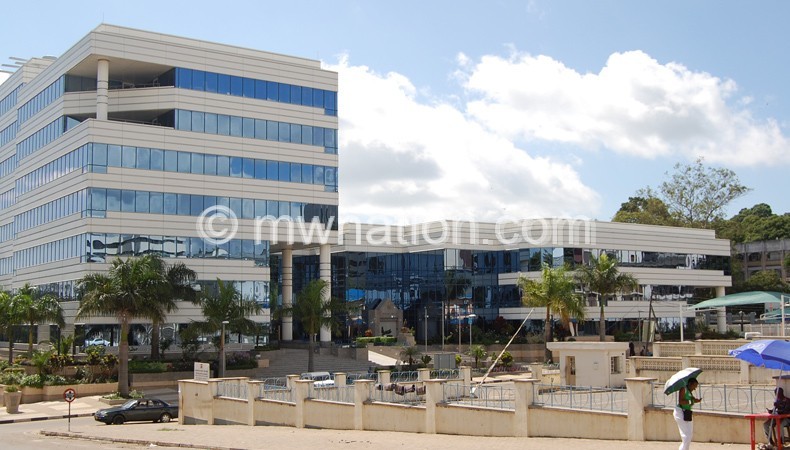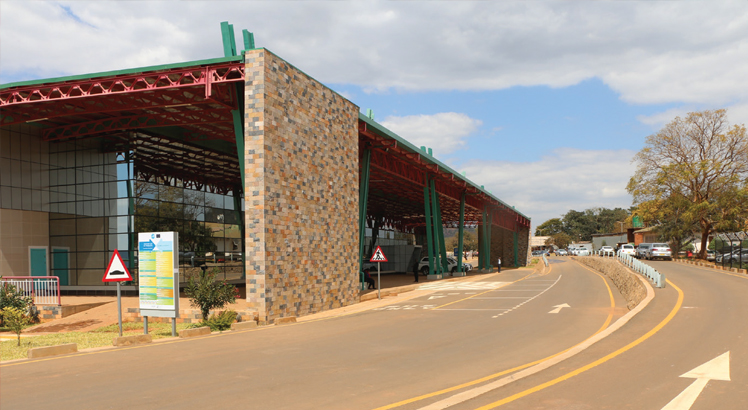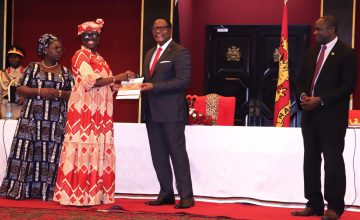Mw economy grew by 6% in 2014—RBM
Malawi economy remained resilient in 2014, growing by six percent buoyed by robust growth in information and communication, electricity, gas, water and mining, among other sectors, the Reserve Bank of Malawi (RBM) has said.
The six percent gross domestic product (GDP) growth rate is 0.3 percentage points lower than the 6.3 percent growth rate attained in 2013, but is within the six percent growth rate required to have a dent on poverty.

Since 2008, when Malawi registered a GDP growth rate of 9.8 percent, second only from oil-rich Qatar, growth has been fluctuating, according to government annual economic reports. In 2009, the economy expanded by 8.9 percent, then dropped to 6.7 percent in 2010, before slumping again to 4.3 percent in 2011. In 2012, the economy grew at a paltry 1.8 percent and eventually picked at 6.1 percent in 2012.
Figures from RBM show that information and communication was estimated to have grown by 10.9 percent in 2014 compared to 7.6 percent growth registered in 2013.
The utilities industry grew by 8.3 percent in 2014, up from a growth rate of 2.7 percent the year before, following improvement in sales of electricity since Electricity Supply Corporation of Malawi (Escom) added 64 megawatts (MW) to the national grid after the commissioning of Kapichira II Power Station, according to RBM.
The hospitality industry is estimated to have grown by seven percent in 2014 from 4.5 percent growth registered in 2013 due to increased conference activities and commencement of operations of Malawian Airlines, which has increased the number of international guests.
Last year, some economic commentators led by the Economics Association of Malawi (Ecama), doubted the projection that the economy would grow by 6.1 percent in 2014 as envisaged by government.
Their skepticism was premised on the fact that the domestic economy was still reeling from some external and internal shocks such as high interest rates that stifled private sector lending and investment, continued withdrawal of budget support by some major donors, the suspension of uranium production and uranium exports by Paladin Energy Limited and the volatility of the kwacha.
But Minister of Finance, Economic Planning and Development Goodall Gondwe admitted in an interview last week that high interest and inflation rates were some of the major factors that undermined Malawi’s growth rate potential during the year.
Said the minister: “I am quite convinced that this year, we are going to see a lot of positive developments, but what worries us most for the time being are two things; inflation and interest rates.
“If we can reduce inflation to a low level and stabilise those figures, then we are likely going to reduce interest rates.”
This year, International Monetary Fund (IMF) has projected that the economy would expand by 5.8 percent.
Gondwe is confident that government would attain the 5.8 percent growth rate as forecast by IMF “looking at how things are working at the moment”.
“We don’t want to shout around what progress we are making. I think looking at the figures, we think that things are moving quite smoothly and we should score the growth rate that the IMF has projected,” he said.
The minister said government will also rely heavily on the management and efficiency of government ministries and departments to grow the economy in the wake of continued budget aid freeze. n





